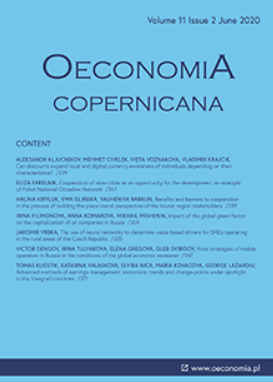Changing fortunes and attitudes: what determines the political trust in modern Russia?
Changing fortunes and attitudes: what determines the political trust in modern Russia?
Author(s): Rogneda I. Vasilyeva, Vyacheslav N. Ovchinnikov, Konstantin Arkadyevich KholodilinSubject(s): Media studies, Civil Society, Government/Political systems, Politics and communication, ICT Information and Communications Technologies, Sociology of Politics
Published by: Instytut Badań Gospodarczych
Keywords: political trust; levels of authority; subjective decile of wealth; interpersonal trust; mass media;
Summary/Abstract: Research background: We are guided by concepts linking political trust with the perceived rank of people in the wealth hierarchy, their confidence in other people, and the means they use to learn about events at home and abroad. Purpose of the article: The aim of the article is to assess and analyse at the micro level the impact of subjective welfare, interpersonal trust and the intensity of usage of television & radio or the Internet to search for news on political trust in four levels of Russian government. Methods: The study is based on microdata from the Life in Transition Surveys provided by the European Bank for Reconstruction and Development. Ordinal logit regressions are constructed to evaluate the impact of test and control variables on political trust in the Russian president, federal, regional, and local governments in 2010 and 2016. Findings & value added: We identify a reverse of political trust in the upper levels of the Russian government between 2010 and 2016, when the impact of perceived welfare level changes from positive to negative. This phenomenon is explained by the focus of the policy of the federal centre on sup-porting the poor groups of the population, as well as its distancing from business. In contrast, the positive, albeit inconsistent, effect of subjective wealth on trust in lower-level governments is due to the benefits that businesses can gain from interaction with local authorities. We find the positive impact of controlled television and radio on trust in the upper echelons of power, along with the negative impact of the freer Internet on political trust in regional and local authorities. We also confirm the hypothesis of a positive and significant relationship between interpersonal and political trust, highlighting the role of social capital.
Journal: Oeconomia Copernicana
- Issue Year: 12/2021
- Issue No: 1
- Page Range: 77-98
- Page Count: 22
- Language: English

